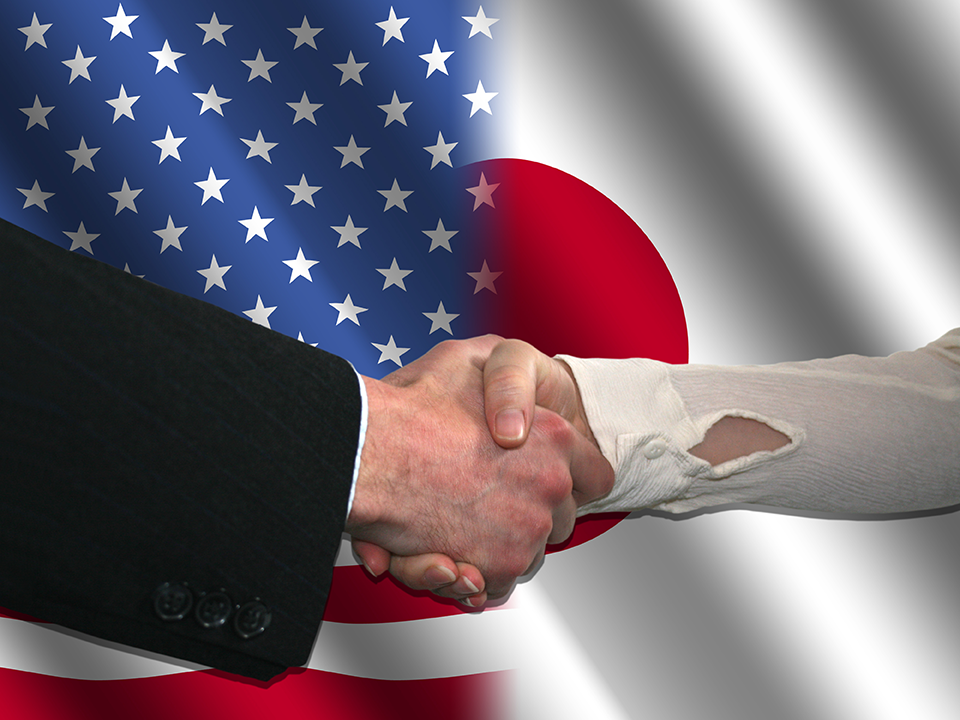 Parler
Parler Gab
Gab
- President Trump reduces 25% tariff on Japanese imports to 15%, part of a deal to open Japan's market to U.S. cars and rice, drawing skepticism from trade experts.
- The deal is hailed as a victory by the Trump administration but is criticized for potentially failing to achieve its goals due to market challenges.
- U.S. automotive sector faces significant hurdles in Japan, where consumers prefer domestic, smaller, and more fuel-efficient vehicles, making U.S. cars impractical.
- U.S. rice is unlikely to succeed in Japan, as consumers are loyal to high-quality domestic rice, considering it superior to imported varieties, despite price differences.
- The deal reflects a lack of understanding of Asian markets and industries, potentially undermining U.S. economic interests and technological competitiveness against China's energy advantages.
A Questionable Victory
The deal is being touted as a victory by the Trump administration, with the president emphasizing Japan's commitment to opening its market to American products. However, many experts doubt the practicality and effectiveness of these provisions. The primary concerns center around the automotive and agricultural sectors, where U.S. products are expected to face significant challenges in the Japanese market.Automotive Sector: A Tough Sell
Japanese consumers are known for their preference for domestically produced vehicles, which are often smaller, more fuel-efficient, and better suited to the country's urban landscapes. American cars, which are generally larger and less fuel-efficient, do not align with the needs and preferences of Japanese consumers. As one commentator put it, "U.S. cars suck, especially compared to Japanese-made cars." This sentiment is echoed by many in the industry, who point out that the size and design of U.S. vehicles make them impractical for the dense, urban environments of cities like Tokyo. Moreover, the Japanese automotive market is highly competitive, with established brands like Toyota, Honda, and Nissan holding significant market share. U.S. car manufacturers, who have little to no presence in Japan, will struggle to break into this market. The limited availability of parking spaces and the high cost of ownership further compound the challenges.Rice Sector: A Market Hard to Crack
The prospects for U.S. rice in the Japanese market are similarly dim. Japanese rice is renowned for its quality and is a staple of the national diet. Consumers in Japan are exceptionally loyal to domestic rice, which they consider superior to imported varieties. The current high prices of Japanese rice, while a concern, are more a result of domestic factors than a lack of supply. As one expert noted, "Japanese rice is arguably the most delicious rice in the world. It's hard to imagine Japanese people switching to U.S. grown rice, no matter the price."Comparative Advantage and Market Realities
The concept of comparative advantage plays a crucial role in international trade. Japan excels in manufacturing precision equipment, optics, and electronics—industries where U.S. companies lag behind. The notion that the U.S. can compete in markets where Japan has a significant comparative advantage, such as automotive and agricultural products, seems misguided.Broader Implications
The deal also reflects a broader lack of understanding of Asian markets and industries within the Trump administration. Critics argue that the administration's approach to trade negotiations with Asian countries, including Japan and China, is based on a superficial understanding of economic realities and market dynamics. This lack of knowledge and expertise could have far-reaching consequences for U.S. economic interests in the region.The AI Race and Energy Production
Adding to the complexity is the ongoing race to achieve artificial general intelligence (AGI). A new analysis by Mike Adams highlights that China's overwhelming energy production, which is more than twice that of the U.S., gives it a decisive advantage in this field. The U.S. is already behind in power generation and has no immediate plans to scale up its energy infrastructure, which is critical for supporting the energy-intensive data centers required for AI development. China's rapid expansion of fossil fuel power plants ensures its dominance in the AI field, while the U.S. struggles to meet the power demands of its own data centers. The projected delay in building new power plants in the U.S. means that by the time significant progress is made, China will likely have already achieved AGI.Conclusion
The reduction of tariffs on Japanese imports is a contentious move with questionable benefits for the U.S. The deal's provisions on automotive and agricultural access are unlikely to yield significant gains, given the deeply rooted preferences and market conditions in Japan. As the U.S. grapples with these challenges, the broader implications for its economic and technological competitiveness in the Asia-Pacific region and globally remain a cause for concern. Watch the July 23 episode of "Brighteon Broadcast News" as Mike Adams, the Health Ranger, talks about Trump concedes to lower 25% tariff on Japanese imports. This video is from the Health Ranger Report channel on Brighteon.com.More related stories:
Trump escalates trade offensive with new tariff notices to seven nations Trump warns BRICS over dollar challenge, threatens 10% TARIFF on member nations Trump slaps 25% tariffs on key Asian allies Japan and South Korea Sources include: Brighteon.comPoll: Americans overwhelmingly support CRACKDOWN on Chinese purchases of U.S. farmland
By Ramon Tomey // Share
U.S. tariffs inflict huge blow on German automakers
By Kevin Hughes // Share
Netherlands names Israel as a SECURITY THREAT, marking a shift in diplomatic ties
By Kevin Hughes // Share
Iran ditches GPS for China’s BeiDou after alleged targeting by Israel, U.S.
By Cassie B. // Share
By Finn Heartley // Share
The great mineral war: U.S. challenges China’s stranglehold on Congo’s rare earth riches
By Lance D Johnson // Share
Governments continue to obscure COVID-19 vaccine data amid rising concerns over excess deaths
By patricklewis // Share
Tech giant Microsoft backs EXTINCTION with its support of carbon capture programs
By ramontomeydw // Share
Germany to resume arms exports to Israel despite repeated ceasefire violations
By isabelle // Share










